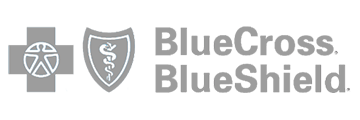DETOX
Southeast Addiction Georgia can help you or your loved one get detoxified and treatment. Contact us to speak with a member of our team that can answer any questions you may have and walk you through the process.
What we Offer
Detox Treatment

If you or a loved one struggles with substance use disorder or alcoholism, it can seem impossible to stop. Suddenly decreasing a dose of one of these substances or stopping cold turkey can create adverse symptoms of withdrawal. This can lead to cravings for the substance and create a vicious cycle of continued use. Your physical, emotional, or mental health may also be negatively affected by the physiological effects of withdrawal from these substances.
However, with proper medical care, detox services can reduce the symptoms of withdrawal. These services can help you achieve sobriety by providing a safe and incremental plan to detox without adverse effects. They also provide education on substance abuse treatment options that are available to you or your loved one.
For those seeking detox services in the Atlanta area, Southeast Addiction Georgia can help you or your loved one get detoxified and treatment. Contact us to speak with a member of our team that can answer any questions you may have and walk you through the process.
Symptoms of Withdrawal
There are many physical, mental, and emotional symptoms that can occur when a person experiences withdrawal. The severity of each individual’s symptoms will vary depending upon the specific substance involved, the amount of use, and the duration of use. Symptoms can range from mild to severe and in some cases life-threatening. It is important to understand that these symptoms are expected and can be managed with the help of a trained medical professional.
These symptoms include:
- Nausea
- Anxiety
- Insomnia
- Hot flashes
- Muscle cramping
- Diarrhea
- Vomiting
- Hallucinations
- Seizures
- Paranoia
- Cardiovascular symptoms
What are the Differences Between Detox and Counseling?
Detox programs are often the first step in treatment. With counseling, there is support and encouragement from a professional to work towards long and healthy lives free of harmful substances.
What Is the Purpose of Detox Services?
A detox program is a way to safely remove the toxins that have built up in the body from substance abuse. The goal is to reverse the effects of these substances so that an individual can begin counseling and therapy. Once in counseling, individuals learn how to avoid relapse and continue forward on the path towards a sober life.
It can be difficult to detox alone. Through assistance from a medical professional with the proper training and tools, an individual is less likely to experience adverse effects such as seizures, hallucinations, or other serious side effects during detoxification. Instead, you’ll take less and less of the substance over a short period of time, as advised by medical professionals.
In some instances, medication-assisted treatment is recommended. This is a treatment approach that uses prescription medication to quit substances more rapidly and with fewer side effects. In some cases, this medication can be administered in a gradual tapering process or as an alternative to detox – once the individual is ready for treatment.
What are the Different Types of Detox Programs?
Depending on the substance you’re trying to detox from, your counselor may recommend a different type of detox program. At Southeast Addiction Georgia, we currently provide outpatient detox services for:
What to Expect in a Detox Program
Our detox programs are customized based on the substance an individual is trying to stop. This means that a service provider will work with you, one-on-one, according to your risk and history of addiction in order to determine the most recommended detox program for you.
Not all substances are physically addictive. Some substances can cause withdrawal symptoms or act as a form of self-medication during times of need. Whether or not a substance is physically addictive can vary depending on each person’s state of mind and body when using it. If you’re concerned about your physical dependence on a substance, consulting with a counselor can help determine the best treatment plan.
What to Expect in a Medication-Assisted Detox Program
Sometimes, medication-assisted treatment is recommended as a part of detox. This is when prescribing medical professionals medically manage withdrawal symptoms by slowly tapering off of substances instead of stopping them abruptly. Medication-assisted treatment can also be recommended to manage cravings from substances or continued use even after detoxification.
What to Expect After Detox
Once the detox process is finished, you will need to go to a long-term treatment program. Inpatient programs, outpatient programs, and partial hospitalization programs (PHPs) are all valid options depending on your needs.
Benefits of Detox
Not every patient needs to start their recovery with detox. Those that do benefit from it. Recovery is much more difficult while experiencing withdrawal symptoms. Going to detox helps you get through the withdrawal process safely while under supervision. If something goes wrong or you need help, there is someone there that can help you.
Those using more addictive drugs, like heroin or opioids, may need medication-assisted therapy (MAT) to handle the withdrawal symptoms. MAT programs can provide medications that slow the onset of withdrawal, making it easier to ween off of drugs and prevent other serious medical issues.
Signs You Need Detox
You may need detox if you stop taking substances for any amount of time and experience:
- Severe headaches
- Severe cravings
- An inability to avoid seeking more substances
- Severe irritability
- Severe muscle pain, aches, or disfunction
- Vomiting/Nausea
- Dizziness
- Insomnia
There are many other symptoms to watch for. If you take strong drugs, like opioids, consider starting a detox program as soon as possible.
Detox can be the key to starting your recovery on the right foot. Southeast Addiction – Georgia can help you take that first step. Contact Southeast Southeast Addiction – Georgia to start your recovery.
Now Accepting TRICARE and VA Insurance
If you or a loved one is attempting to save your life by getting clean, there’s no time to waste. Getting medical detox is the first, best step to getting sober and entering a lasting recovery. Southeast Addiction is proud of our detox facilities, which go beyond the industry standard in providing world-class care to anyone who’s ready to take the first step at getting sober.
If you’re thinking about getting sober, we salute you! Entering recovery is always the right decision. But if you are thinking about getting sober, it’s important to get through withdrawal in a detox facility. Chemical withdrawal can be extremely dangerous. Cocaine withdrawal, heroin withdrawal, alcohol withdrawal, and other drug withdrawals risk one’s health, life, and well-being if not undertaken under clinical supervision.
Because detox is so important, we want to make sure that our proven care facilities are available to everyone. That’s why we’re so proud to announce that we’re now accepting TRICARE and VA insurance. We believe that everyone, especially those who sacrificed for our country, should have access to the best care that we can provide. Because they deserve it.
Tricare Insurance
Since 1995, TRICARE Insurance has been the healthcare insurance provider for active-duty military personnel, National Guard members, and their families. They answer our nation’s call, both at home and abroad. And when they need help, it’s our privilege to give back to them. If you or a loved one is ready to enter recovery, please call us today at (888) 981-8263. It’s always worth it.
VA Insurance
Even after their service is complete, we know that our veterans are still owed a debt to the country that they served honorably. Our veterans deserve the best detox services that insurance can provide. That’s why we’re also proud to accept VA insurance. We don’t do enough for our veterans. We’re honestly not sure that we can. But if you call us today at (888) 981-8263, we can do this. Contact us today, and get started on the first day of the rest of your life.
Get the help you need now
We are Here for you.
If you or a loved one need help, we are available to guide you through every step of your recovery. Call us today and speak with a recovery counselor to get started.








